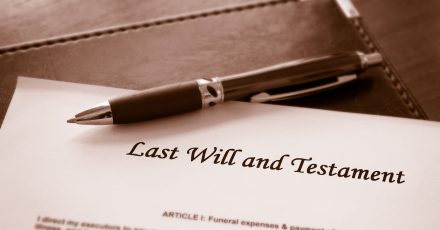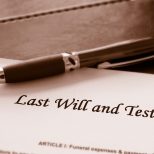
Lost Will? What if a Will can’t be found after someone’s death?
5th June 2023 by Kate Mansfield
Locating a Will after someone has died is not always easy. If you believe that the deceased made a Will, you should do all you can to find it. We offer some tips for locating a Will as well as advice on what to do if you are unable to do so.
The deceased’s papers may contain information about whether they made a Will and, if they did, where this is stored.
There are several common options for storing a Will. Firstly, it could be stored with the solicitors who dealt with the drawing up and executing of the Will. This is a popular way to keep a Will safely and it can usually be located relatively easily. The solicitors will have provided written confirmation to the deceased that they have the Will and this letter is likely to be with your loved one’s important papers. Alternatively, you can contact the firm you believe they used or local firms in the area to make enquiries.
If the law firm they used has closed down, the Solicitors Regulation Authority will make sure that any Wills held by the firm are retained safely, so you can check with them. They will also have information in respect of firms that have merged or been taken over.
The next place to try is the National Will Register. This is a list of Wills registered by over 8 million individuals.
The Principal Probate Registry stores some Wills and you should also enquire there.
Finally, the deceased’s bank may hold the document.
Using a copy Will
It is occasionally possible to send a copy of an executed Will to the Probate Registry if the original cannot be found. A sworn affidavit would need to accompany the copy Will explaining how the Will has been lost and setting out details of the efforts made to trace it.
Information about who would benefit from the deceased’s estate if the copy Will is not proven will need to be provided.
If the evidence points to the deceased having kept the Will, then the Probate Registry will presume that they have revoked the Will by destroying it. If there is evidence to the contrary, this can be used to try and rebut this assumption.
Any information about the deceased’s state of mind in respect of their Will, to include conversations with others and actions taken, can be used to establish whether it was intended that the provisions of the copy Will should take effect.
Intestacy
If no Will can be found and there is no way to establish what the deceased’s intention was, then the Rules of Intestacy will be used. These set out who will inherit an estate when there is no Will.
The first person to inherit under the rules is the deceased’s spouse or civil partner. They are entitled to all of the deceased’s personal possessions plus the first £270,000 of their estate. If the deceased had children, then the remainder of the estate is split with them. The spouse or civil partner will have half and the children will share the other half equally between them.
If the deceased did not have children, then their spouse or civil partner will inherit everything. If the deceased had no spouse or civil partner but did have children, the children will share the estate.
If the deceased did not have a spouse, civil partner or children, then the next category of relative to inherit is parents, followed by siblings if there are no parents living.
It is usually the case that someone who is entitled to inherit will make the application to the Probate Registry for a Grant of Letters of Administration. This is the document that gives legal authority to an individual to deal with the estate administration.
Contact us
If you would like to speak to one of our expert Wills and probate lawyers, please contact a member of Laceys Wills, Probate and Trusts team on 01202 377984 and we will be happy to help.



